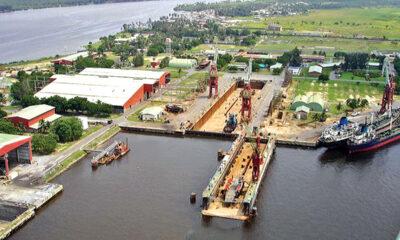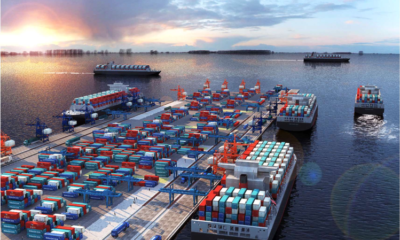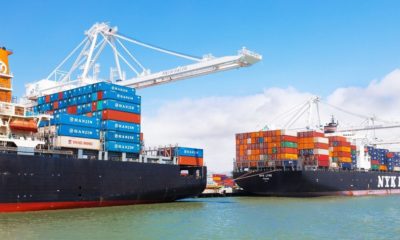- ‘NPA Needs About N50bn For Purchase Of Fenders, Patrol Boats’
To fix dilapidated fenders and purchase patrol boats for adequate service delivery across the country, the Nigerian Ports Authority (NPA) will be needing about N50billion.
This was according to a senior officer with the Nigerian Customs Service (NCS) who noted that the marine rubber fenders which are used as “bumper” for ships to berth and prevent collision, is very important and must not be underestimated by the NPA.
According to reports, the dilapidated state of the fenders causes a delay in cargo clearance which prolongs activities at the Lagos Port Complex (LPC).
“Depending on the speed, a big or medium-sized ship will destroy the dock, if there are miscalculations or if the energy is not efficiently absorbed by the “bumpers”, or worse, if there are no fenders to absorb the collision. Ships coming into contact directly with the quay wall or shore is a big problem; they usually cause serious damage at the ports if the fenders are not provided by the agency,” he explained.
“Since Ocean is the most cost-efficient transportation means in the world, there are vessels of all sizes and kinds around the world that are calling at the Lagos Port Complex. From the use of fishing vessels, to bulk carriers, to container vessels, there are a lot of ship types on our waters that need reliable fenders to berth. NPA may need between N30billion and N50billion to provide the modern fenders and purchase the patrol boats for adequate service delivery.
“As ships got bigger, the old timber and tyre structures used before just aren’t strong enough to absorb efficiently. We needed a better solution.
“That is why marine fenders were invented. The ones needed by NPA must be efficient, strong, and able to cope with the new ship designs to avoid unnecessary accident in our ports.”
The senior officer urged the NPA Managing Director, Ms Hadiza Bala Usman to ensure the provision of the fenders and the patrol boats to end the prolonged waiting time for vessels calling at the Lagos seaports.
Reacting to the state of the port, NPA’s General Manager, Corporate and Strategic Communications, Mr Adams Jatto disclosed that NPA had initiated the plan to provide the fenders and the patrol boats to boost efficient service delivery to customers.
Jatti, however, did not mention the amount to be spent but noted that a huge amount of money is required to purchase at least, 4.5M DIameter Yokohama Pneumatic Rubber Fenders and patrol boats to position the Ports for greater efficiency.

 Forex2 weeks ago
Forex2 weeks ago


 Naira2 weeks ago
Naira2 weeks ago
 Naira4 weeks ago
Naira4 weeks ago
 Company News4 weeks ago
Company News4 weeks ago
 Billionaire Watch1 week ago
Billionaire Watch1 week ago




 Naira2 weeks ago
Naira2 weeks ago




 Naira1 week ago
Naira1 week ago




 Naira4 weeks ago
Naira4 weeks ago




















